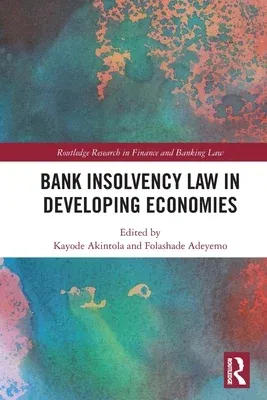The subject of bank stability has been under a great amount of political
and legislative scrutiny since the mid-2007 to late-2009 global
financial crisis. However, these efforts have centred on developed
economies. Little coverage is given to strategies adopted by many
developing economies. While there is a global discourse on the subject
of insolvency generally, there is ample scope to contribute to the
growing body of work on the narrow subject of bank insolvencies. This
book provides a unique perspective on an emerging theme in at least two
respects. First is the focus on selected developing economies and
selected developed economies in the EMEA region alongside cross-border
developments, with the objective of deciphering the regulatory approach
to bank insolvencies. The second is the analytical consideration of
methods that may be implemented to preclude or resolve bank insolvencies
in developing economies. This book explores the nexus between developing
economies and their banking institutions. Developing economies are
acutely dependent on their banks for the functioning of their cash-based
economies. Recent events, however, suggest a weakness in the long-term
viability of some of their banks and a mixed-bag regulatory approach to
redress this weakness. This book evaluates the effectiveness of
regulatory frameworks in selected developing economies that are designed
to prevent or resolve the insolvency of banks. At a time of global
economic uncertainty, this book will prove to be a valuable resource to
the discourse on the viability of banks, businesses, and economies in
developing States.

